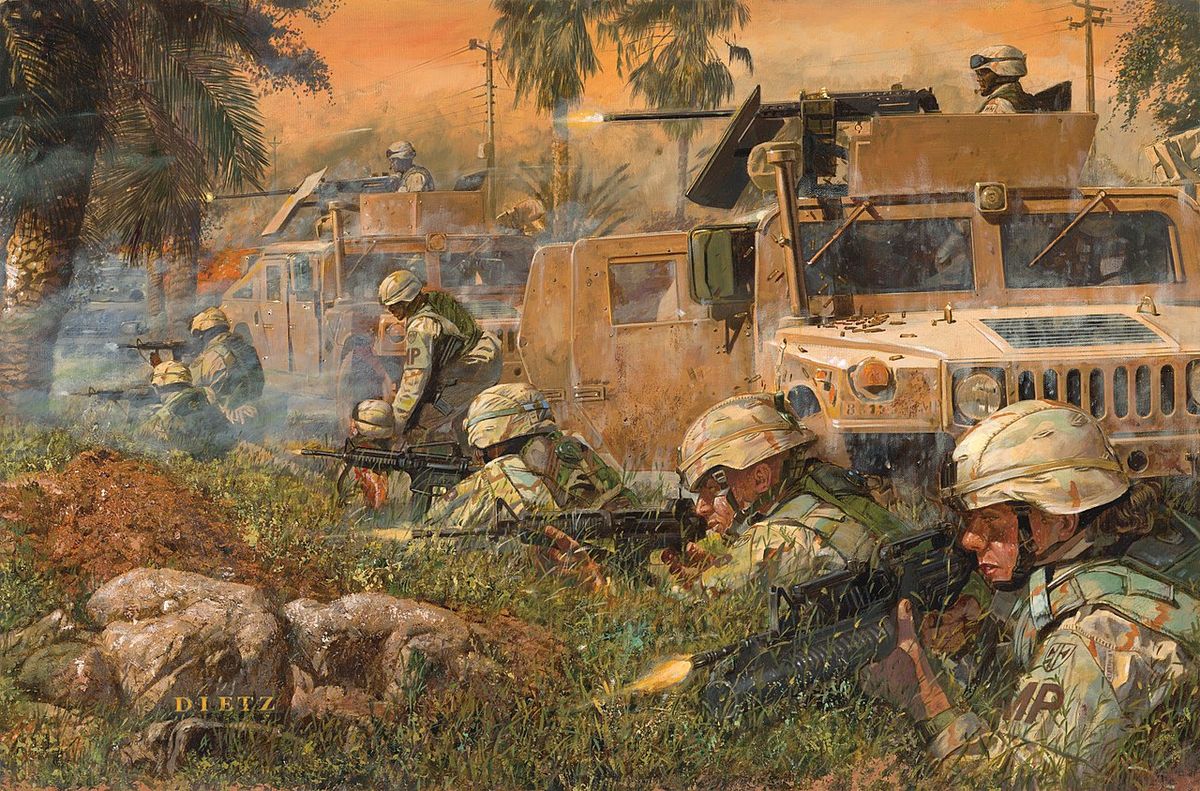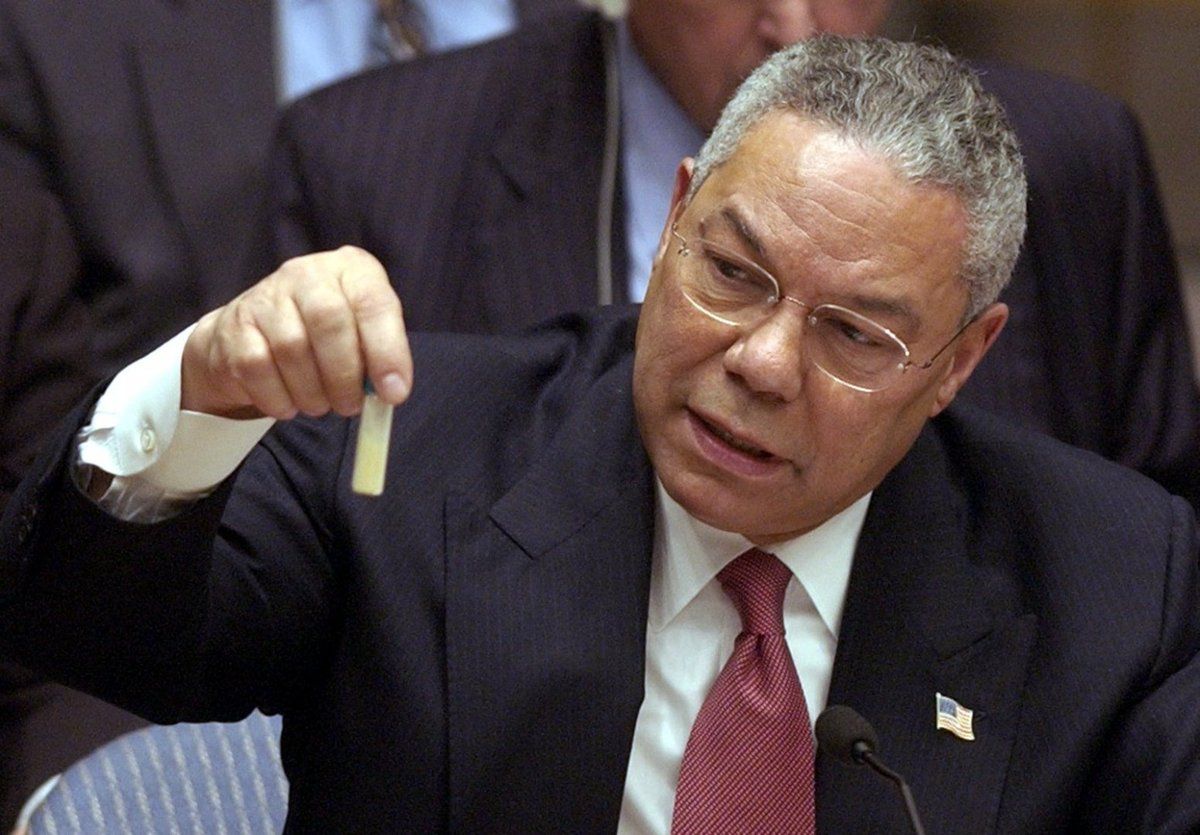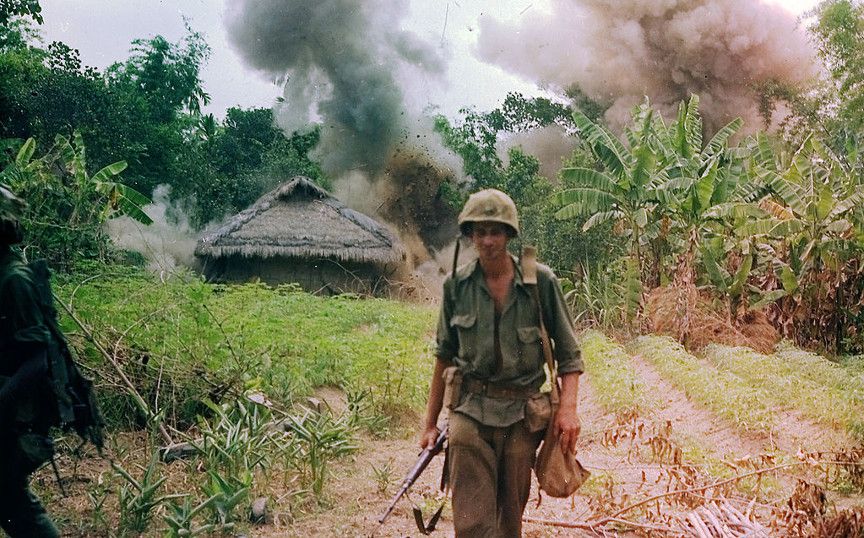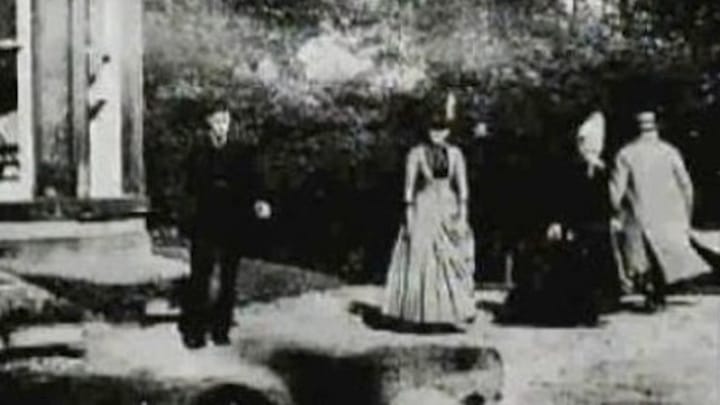The Iraq War, 20 years on: what we failed to learn.
America flunks history class yet again. There's no excuse this time.

Twenty years ago this weekend, on March 19, 2003, military forces of the United States and a scattering of allied nations invaded the country of Iraq. Contrary to the glib assurances of the war's chief architects, mainly President George W. Bush, Vice-President Dick Cheney and Secretary of Defense Donald Rumsfeld, the war was not a quick little jaunt to remove a tin-pot dictator and "liberate" a long-suffering people. Instead it became a brutal, grinding eight-year slog that killed perhaps 600,000 human beings and, in ways probably still yet to be seen, struck a deep blow at America's global military and economic hegemony. The war accomplished virtually none of its stated objectives and has become a painful episode that most Americans have hastened to put down the memory hole. Although historian Barbara Tuchman died in 1989, if she'd lived in a later era I can imagine few starker examples of the kind of episode in history that she would have labeled "The March of Folly."
Now with two decades of hindsight, what did we learn from this event? The answer sadly appears to be, almost nothing, or at least not much that will be of any value going forward. As a historian, when I talk to people about the basic question, "Why is knowing history important?", the usual reflexive answer is some variation of, "So we can learn from our mistakes." But the Iraq War of 2003-2011 and how we conceptualize it is a prime example of our society's stubborn refusal to do exactly that. Most retrospective analysis of the war, especially its inception and justification, focuses on the narrow issue of WMDs (Weapons of Mass Destruction) or else builds cartoonish Machiavellian caricatures of Bush or Cheney at whose feet we can conveniently lay responsibility for the disaster--and absolve ourselves of our collective complicity. These pantomimes do violence to the historical context and the broader meaning of the Iraq War. And they certainly don't help us analyze or fix the systemic problems that brought this monstrous thing into existence, and might well do so again given the right circumstances.
One of the major lessons we failed to learn from the Iraq War is that journalism as an institution is fundamentally and fatally broken. The war demonstrated conclusively that journalists have no meaningful accountability. While it's exceedingly difficult to find in 2023 anyone (besides Tony Blair) who will go on record as saying the invasion of Iraq was a good idea in hindsight, it's equally difficult to find an example of a journalist or pundit from the 2002-03 run-up to the invasion who suffered any real consequences for having been wrong back then. During the most intensive phase of the Bush II administration's PR blitz to sell the war, which climaxed in former Secretary of State Colin Powell's lie-ridden rant to the United Nations about Iraq's supposed WMD capability, the American press, and particularly the television news networks, overwhelmingly slanted their coverage in favor of war-justifying arguments and against those with dissenting views. The New York Times and the Washington Post lent considerable weight to pro-invasion arguments and sketchy little to the other side. Ludicrously bad and fractally wrong pundits on Iraq, like the execrable William Kristol or the grotesque creature called David Brooks, continue to have platforms today, 20 years on. Even the beloved late newsman Tim Russert admitted at the end of his life (he died in 2008) that he sandbagged and soft-pedaled invasion-critical views on Meet the Press for fear of offending politicians or audiences. As for the rare breed of journos who were skeptical of pro-invasion arguments, ask yourself: how often have you seen Phil Donahue in the last 20 years?

To be sure, the majority of the American public was pro-war in 2002-03, and many were, at least at first, persuaded by the WMD argument which had special resonance post-9/11. I admit for a time that I was convinced by it, and especially by Powell's performance art. I was wrong. Many of my fellow citizens were too. But journalists are supposed to investigate and report the facts as they really are. The facts were that Iraq had no weapons of mass destruction, which in any event was something of a red herring to begin with. Actual possession of WMDs was only tangentially connected to the Bush administration's chief reasons for seeking the conquest of Iraq, which primarily followed a tortured line of logic, championed by another fractally wrong pseudo-human being named Dick Cheney, that invading Iraq would serve as some sort of demonstrative example to other rogue states and dictators that they better not give WMDs--whether they presently had them or might someday acquire them--to terrorists. Cheney's view of the world was utterly irrational and completely divorced from geopolitical reality as it existed even in the chaotic months following the September 11 attacks. The press, seeking (as always) advertising dollars, was loath to investigate what was really behind the invasion. Hence we were stuck with the shallow and disingenuous playground-level binary of "Saddam has WMDs!" "Nohedoesn't!" as what passed for "debate" about whether the war was a good idea. We were not served well by that framing and have not been since.
Also generally missing from our collective consciousness on Iraq is any acknowledgement of its relationship to the larger project of American empire in the post-World War II era. The U.S. is an empire, built largely on the foundation of its 1945 victory and especially on the pillars of its military, economic and cultural power that American leaders have assiduously sought to project into every corner of the world. Since 1945 the U.S.'s spending on military and defense has dwarfed that of any other country. Yet its track record in military engagements is suspiciously poor: in the five major wars in which the U.S. was involved between 1945 and 2021--Korea, Vietnam, the Persian Gulf, Iraq and Afghanistan--America scored only one unequivocal military victory, that being the Persian Gulf conflict of 1990-91 which Bush II was hoping to emulate. When you take off the polarized sunglasses of American exceptionalism, America suddenly doesn't look very exceptional.
Iraq in 2003 was a battlefield even less likely to yield an American victory, especially considering the unlearned lessons of Vietnam. Beyond the justifications of defensive war or feverish Cheneyian rantings about suitcase nukes and mushroom clouds, something deeply embedded in the American imperial psyche compelled us to strike out at Iraq against the whole of what should have been our better judgment. To understand these complicated lessons we have to draw uncomfortable comparisons with the Roman, British and Soviet empires. Americans, as a whole, are generally allergic to entertaining those sorts of comparisons. Any historian who raises them gets shouted down because he or she is not wearing those polarized sunglasses of American exceptionalism, which is apparently the admission ticket to debate, at least in this country.

To most of the rest of the world, what we did in Iraq was quite clear, and was even 20 years ago before the invasion started. It was a reckless, dangerous, illegal and asinine adventure that was inexorably destined to blow up in our faces, which of course it did. We should have seen it coming. But even more self-evident is that we should, with the benefit of 20 years of hindsight, understand now why it was a disaster and why we blundered into it. I'm not sure that we do. America flunks history class yet again. We've got no excuse this time, because most of us lived through it in real time.
This post is an example of the kind of article that will, later in March 2023, be available to paid subscribers (once that tier launches).
Why should you be reading this blog, or receiving it as a newsletter? This is why.
☕ If you appreciate what I do, buy me a virtual coffee from time-to-time to support my work. I know it seems small, but it truly helps.
📖 You could also buy my newest book.
🎓 Like learning? Find out what courses I’m currently offering at my website.
📽 More the visual type? Here is my YouTube channel with tons of free history videos.
The header image is a painting, "Raven 42" by James Dietz.



Comments ()